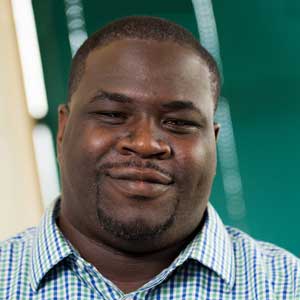
Mathematics embodies the human attempt to understand the world we are immersed in. It is the language that underlies science, engineering, and technology. It plays a critical role in understanding how societies work, how people interact, and what impact people and societies have on the world around us.
The Department of Computational Applied Mathematics and Operations Research (CMOR) has a mission to explore this intersection between mathematics and the world. Faculty and students in CMOR work on problems that model processes and decisions in the physical world, industry, and in society. At the heart of it all, we utilize mathematics to improve the world around us. Examples include modeling the hemodynamic state of a patient with congenital heart disease, constructing models for political redistricting, understanding earthquakes and inter-seismic slippage and tidal deformation, determining optimal placement for radiation therapy for head and neck cancer, computational fluid dynamics for aerospace applications, shape optimization for improved acoustics, determining optimal or near-optimal routes for package deliveries, constructing models of underground structures from acoustic data, developing algorithms to allocate organs to transplant patients, and computing the impact of urban development on street flooding. As part of the process, researchers in CMOR make fundamental contributions to mathematics, algorithms, and computations that play into the solution of such problems.
The CAAM BA and the newly formed Operations Research (OR) BA degree help undergraduates develop analytical and computational skills that set them up for careers ranging from consultants and data scientists to engineering analysts and financial engineers. The OR BA degree is more geared toward solving complex decision problems while the CAAM BA is more geared toward modeling physical systems for understanding and applications. Across all these fields, CMOR graduates bring their mathematical expertise to bear on real-world problems.
The Ph.D. program helps exceptional students develop into researchers and teachers. Our Ph.D. graduates move on to successful careers in both academia and industry. I, myself, received my PhD from the department back in 2000.
Rice offers three related residential non-thesis master’s degree programs. The Master of Computational and Applied Mathematics degree provides an opportunity for the student to dig more deeply into the theory and practice of one of the sub-disciplines of mathematics. The Master of Industrial Engineering focuses intently on operations research and industrial engineering. The Master of Computational Science and Engineering degree program is interdisciplinary in which students take courses from CMOR, Computer Science, Electrical and Computer Engineering, and Statistics; these students work out a suitable curriculum with their advisor.
Our department is a unique entity that houses researchers in operations research, optimization, and more traditional areas of computational applied mathematics like numerical analysis and partial differential equations. This rare combination of areas offers our students more than an applied mathematics or operations research department could offer individually, mathematical rigor combined with a unique perspective on solving problems. Our uniqueness is our strength!
The department is at an exciting point in its history. While CMOR is over fifty years old, it is a time of unprecedented growth and opportunity. Over the last two years, we have hired five new faculty members, each of whom brings new interests, new perspectives, and new skill sets to the Department. Going forward, the department will hire even more faculty. These new hires will bring growth and excitement to an already distinguished group.
Thank you for your interest in our department.
Illya Hicks
Department Chair
